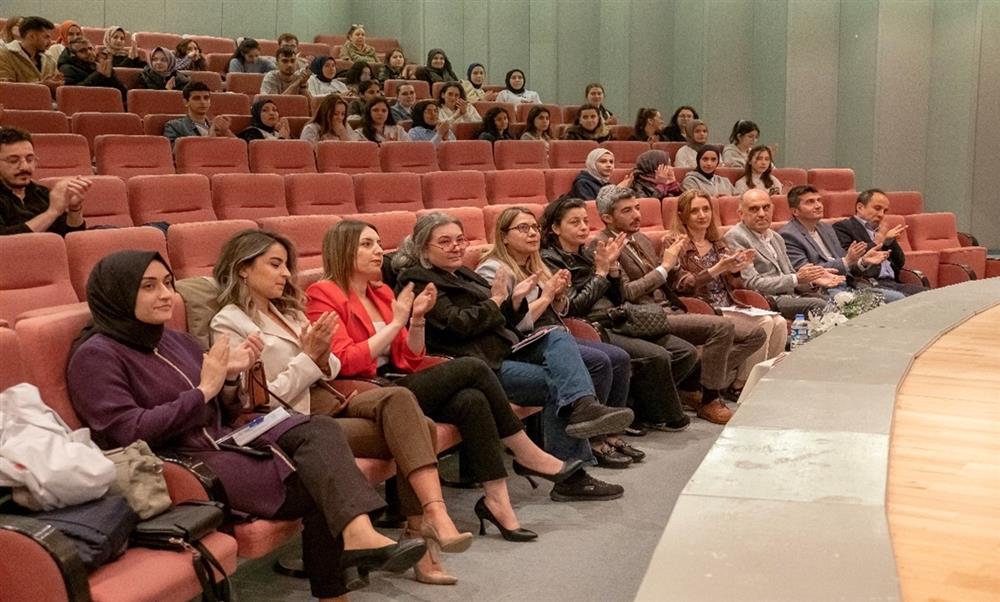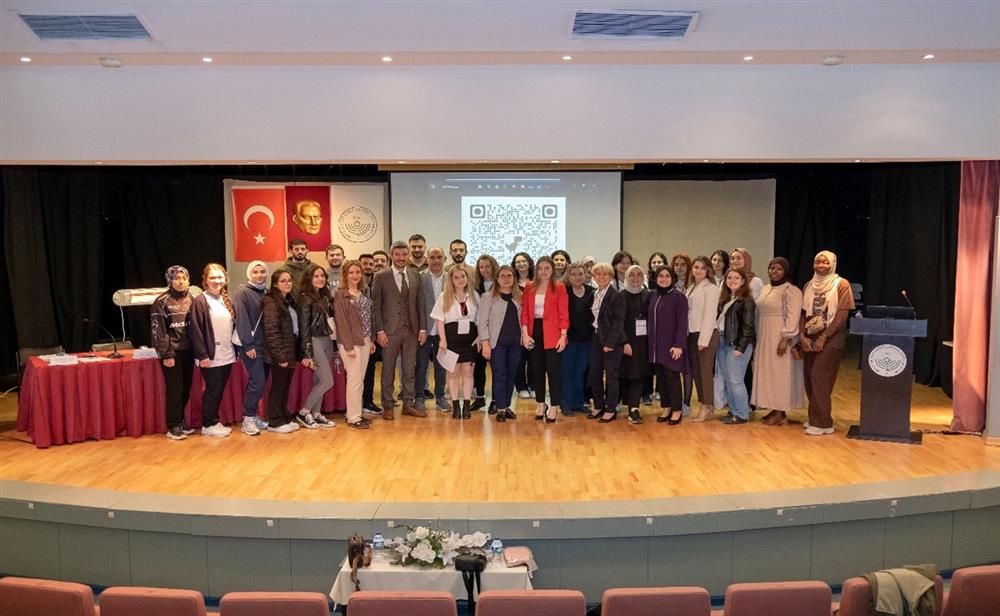
A panel titled '’Medicalization of Women's Health'’ was organized by the Nursing Department of our university's Faculty of Health Sciences on April 29, 2024.

The panel, held in the Pink Hall of the Izzet Baysal Cultural Center, began with a moment of silence and the recitation of the National Anthem. Academic and administrative managers, academic and administrative staff and students attended the panel.
Vice Dean and Nursing Department Faculty Member Assoc. Prof. Dr. Nevin Çıtak Bilgin, who delivered the opening speech and served as the moderator, explained that medicalization is the definition of a non-medical, social issue as a medical problem, disease and condition requiring treatment. She stated, "Today, women's life processes are more susceptible to medicalization compared to men. Therefore, we can say that gender is an important factor in medicalization."
"Most health content is directed towards women"
The first presentation was delivered by Prof. Dr. Selami Özsoy, Faculty Member of the Journalism Department at the Faculty of Communication, on the topic of 'Women and Health in the Media'. Özsoy, who explained the role of women in the media, emphasized that the majority of health content is directed towards women, and summarized as follows, "Themes such as anti-aging, diet, obesity, aesthetics, depression, hair loss, menstruation, pregnancy, childbirth, and menopause are constantly in the forefront in the media, with commercial advertisements related to these topics immediately following."
"There is a societal perception of beauty that has evolved into a disease"
Asst. Prof. Dilek Eroğlu, Faculty Member of the Department of Sociology at the Faculty of Arts and Sciences, made a presentation titled "The Body Trapped in the Mirror of Snow White: Myths Shaping Women's Body Perception in Patriarchal Societies." Eroğlu, who talked about the notion of beauty that has evolved into a disease, such as being thin, delicate and fair skin is expected from women in society, summarized, "Why are we unhappy with our bodies and constantly searching for new ones? When it comes to women, the biggest influence is societal gender roles. In Turkey, this situation linked to gender is within a male-dominated structure, in other words, patriarchal," she emphasized.
“Obsession with staying thin during pregnancy”
Making the presentation on "Pregorexia and Health Programming", Faculty of Health Sciences Department of Nutrition and Dietetics faculty member Asst. Prof. Taha Gökmen Ülger talked about the media and social perspective on the emergence of pregorexia, which he described as an obsession with staying thin during pregnancy, by reducing energy intake and increasing physical activity. Ülger pointed out that the children of mothers who consume minimal energy during pregnancy have a higher risk of developing chronic disease such as cardiovascular diseases, diabetes, and high blood pressure in later ages. He emphasized that health is largely a concept that can be programmed by the individual themselves.
"Medicalization of natural processes"
Health Sciences Faculty Nursing Department Research Assistant Mervenur Böyük made a presentation titled "Medicalization of Women's Reproductive Health." She explained with examples how natural processes such as pregnancy, childbirth, menstruation, menopause, and similar processes have been medicalized throughout history and in contemporary times.
After the questions and answers session, certificates of appreciation were presented to the panelists. A group photo was taken.
Opinions of Participants Regarding the Medicalization of Women's Health Panel
Of the 120 participants who attended and provided feedback, 98.3% were students, and 86.7% were women.
The majority of participants (67.5%) were informed about the event through announcements (banners, posters, invitations), 90.8% found the venue of the event suitable, 81.7% found the timing of the event suitable, 85.8% found the duration of the event sufficient, 91.7% found the content of the event sufficient, 86.7% stated that the event met their needs and 89.2% stated that the event contributed to their knowledge and/or skills. 90.8% of the participants evaluated the event as good to excellent.
Participants expressed that the topic of the panel was original and current, discussing women's health from various disciplines was beneficial and the program flow was impressive and attention-grabbing.
